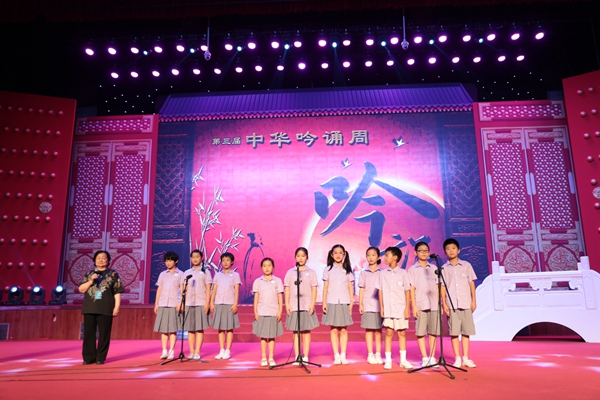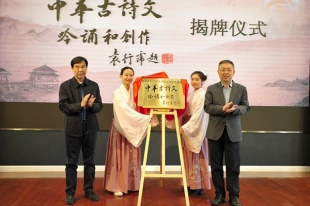Poems rhyme through the ages


The melody of ancient yinsong is attracting new followers enchanted by its echoes of tradition, Xing Wen reports.
The pitch is crucial, as is the rhythm. It is musical, but not essentially music. The words are inspirational and tap into to a deep human yearning that Zhao Fang, 14, and her classmates in Yibin of Sichuan province master with an expertise that belies their tender years. Accompanied by the seven-stringed Chinese instrument the guqin, the children chant an ancient Chinese poem with a confident cadence that pays homage to tradition.
"Of all the poems I learned to recite, my favorite is Caiwei (Homecoming After the War), a poem from The Book of Songs," Zhao says. The Book of Songs is the oldest collection of Chinese poetry, dating back to the 11th to 6th centuries BC. Zhao chants out the last part of it in Mandarin. "'When I left here, willows shed tears. I come back now, snow bends the bough. Long, long the way; Hard, hard the day. Hunger and thirst, press me the worst. My grief o'erflows. Who knows? Who knows?"'
The words struck a chord in Zhao. She "doesn't know exactly why", but they simply touched her. Her rendition of the ancient poems and texts ignited a yearning since she first learned to chant them in traditional yinsong two years ago.
Yinsong, a melodious chanting of Chinese ancient works has survived for about 3,000 years, and provided a form of delivery that allows people to compose and appreciate poems for generation after generation.
Zhao and many of her peers, despite their undoubted skill, remain novices. For millennia, Chinese teens have been using a singsong style as an effective tool to compose or memorize poems and prose.




































